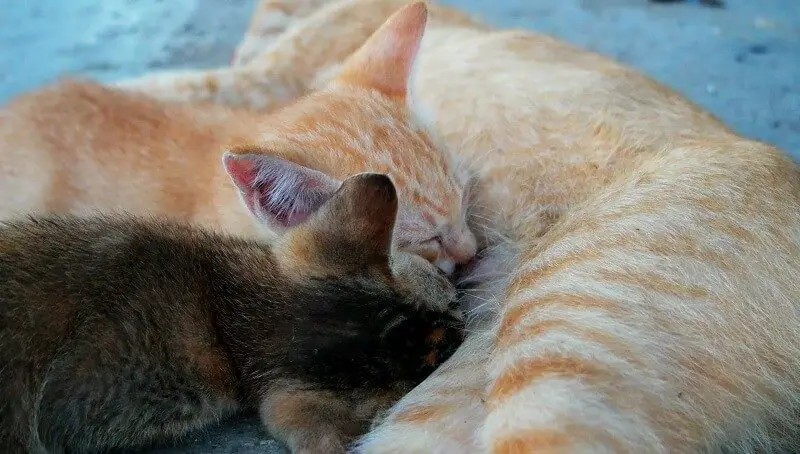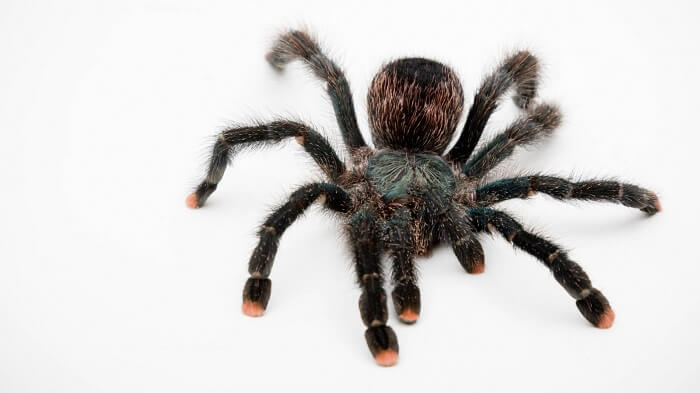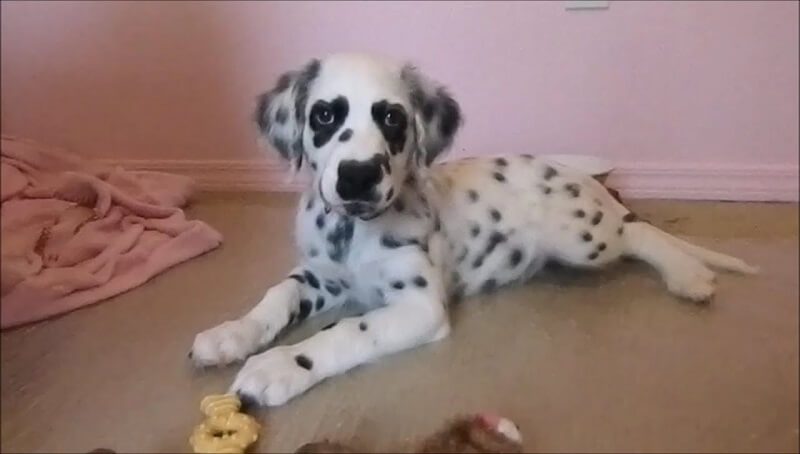Your cat went through pregnancy and gave birth to her kittens. Now it’s time for her to take care of her kittens, but for some reason, she won’t breastfeed them. Perhaps she has completely rejected one or more kittens or simply she is not sure how to breastfeed them properly. What should a worried cat owner do?
In most cases, mother cats give birth to kittens and take care of them with minimal or no human intervention. However, there are times when nature does not take over its normal course. In such cases, people need to intervene and provide assistance.
Why a mother cat cannot or does not want to nurse her kittens
There are several potential scenarios for a mother cat who refuses to breastfeed her kittens. In some cases, the mother cat may start breastfeeding but then stop. Or, she can never begin to breastfeed. The mother cat may reject some or all kittens. Not only will she refuse to breastfeed her kittens; she can totally ignore them or act aggressively when approached by a kitten.
If this happens, the first step should be to take the mother and kittens to the veterinarian as soon as possible. If you can figure out why a mother cat won’t nurse her kittens, you may be more likely to get her to start breastfeeding them. Or, you may need to make the decision to care for the kittens yourself. Either way, your veterinarian can help. Remember: When you go to the veterinarian, make sure you take the mother cat and all her kittens, regardless of who is sick or not.
Health problems in the mother cat
If the mother cat is experiencing a health problem, she may not be able or may be unwilling to nurse her kittens. There are cases when she will not produce enough milk for her kittens. Or, a problem like mastitis can affect her ability to breastfeed comfortably.
You might also like my articles on:
- How much you should feed a kitten
- When do kittens open their eyes
- How many kittens can a cat have in a single litter
Dehydration and malnutrition will also affect the milk supply. Any health problem that causes your cat to feel sick can make her not want to nurse her kittens. Even if the mother cat seems healthy, it is best to take her and her kittens to the veterinarian immediately if you notice that she will not breastfeed.
Sick kittens
The mother cat may detect or suspect a health problem in one or more kittens and may refuse to breastfeed them. It can take the sick kitten out of the nest in an instinctive attempt to protect the other kittens. The problem may be an obvious congenital disability or a major disease or something more subtle.
However, this can happen even if there is nothing wrong with the rejected kitten. Do not try to put a rejected kitten back in the nest. This is unlikely to be successful, and it can stress the mother, possibly leading her to reject more kittens, perhaps even the entire litter. Instead, you can bottle-feed and keep the rejected kitten warm while making arrangements to take the mother and all kittens to the veterinarian as soon as possible.
A litter with too many kittens
 Some litter can be so large that the mother does not have enough nipples to feed all her kittens. It may not produce enough milk to feed the entire litter. The mother can favor the stronger and reject the weaker. Once again, do not put the rejected kittens in the nest. The mother and kittens should go to the veterinarian as soon as possible. Rejected kittens should be bottle-fed and kept warm in the meantime.
Some litter can be so large that the mother does not have enough nipples to feed all her kittens. It may not produce enough milk to feed the entire litter. The mother can favor the stronger and reject the weaker. Once again, do not put the rejected kittens in the nest. The mother and kittens should go to the veterinarian as soon as possible. Rejected kittens should be bottle-fed and kept warm in the meantime.
Immature mother cat
Very young cats often lack the maturity to be good mothers. They may also lack energy reserves to produce milk because they are still growing. A female cat can become pregnant as early as four months of age, but this is definitely not a proper age to become a mother.
In most cases, she is too young for her and her kittens to thrive. If you have a young cat that has rejected some or all of her kittens, you will need to step in and help. Take them to the vet to be examined and talk to him/her about how you can best help your mother cat and her offspring.
Finally, some cats do not have a very maternal nature and are simply not good mothers. If this is the case with your cat, it should not be mounted in the future, as this trait can be passed on to her offspring.
Feeding the kittens
If the mother cat will not feed her newborn kittens at all, it is important to take both the mother and kittens to the veterinarian as soon as possible. Meanwhile, you need to find a way to feed the kittens, as they need to eat every few hours with the exact frequency depending on their age. This is usually done through the bottle-fed cat formula. It is also essential to provide maternal care to newborn kittens. Keep them warm and help them do their needs by stimulating them as the mother cat should do.
There are several types of milk formulas specifically for kittens that are available in most pet food stores and on websites that sell pet items.
Avoid cow milk or human baby formulas, as they are not nutritionally adequate for kittens and can lead to health problems, and can even be lethal if fed for a prolonged period of time.
You can use a small bottle for cats to feed the formula to the offspring. However, many people think that a pipette works best at first. Newborn kittens will need to be bottle-fed approximately every two hours.
Gently heat the formula and feed about 1 teaspoon (5 ml) per kitten. This amount is for kittens who have just been born. Ask your veterinarian about the appropriate amounts to feed as your kittens grow.
If your cat is expecting kittens, it’s a good idea to have a cat formula at your disposal, in case the mother cat is having trouble nursing. If you don’t need the formula, you can use it anytime later. Adding a kitten milk formula to wet cat food can help when kittens start switching to solid foods. Or you can donate it to a cat shelter or rescue group.
Once you have been to your veterinarian and solved any problem, you will probably need to try again to get your cat to breastfeed, but only if you have a veterinarian’s recommendation. If the mother cat is still unable or will not feed her kittens, then continuous bottle feeding will be required. Kittens should be fed cat milk formula for at least the first four weeks of their life. You can start introducing cat foods around the age of three weeks, and once your kitten eats on its own, you can start to gradually reduce the amount of milk you give him.
Remember that your veterinarian is the best source of information when it comes to kitten care. Ask your veterinarian for information about the amount and frequency of feeding, how to help your kittens meet their needs, and how to keep them clean and warm.




